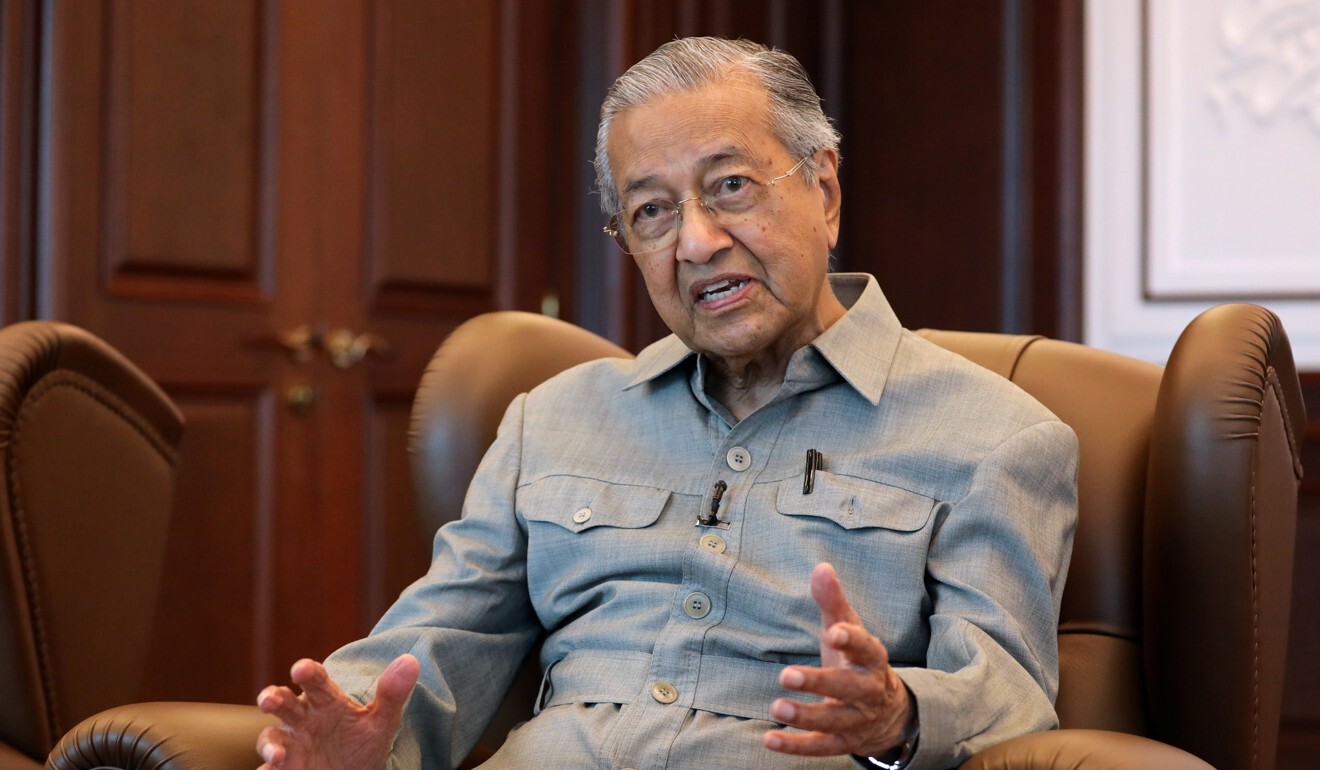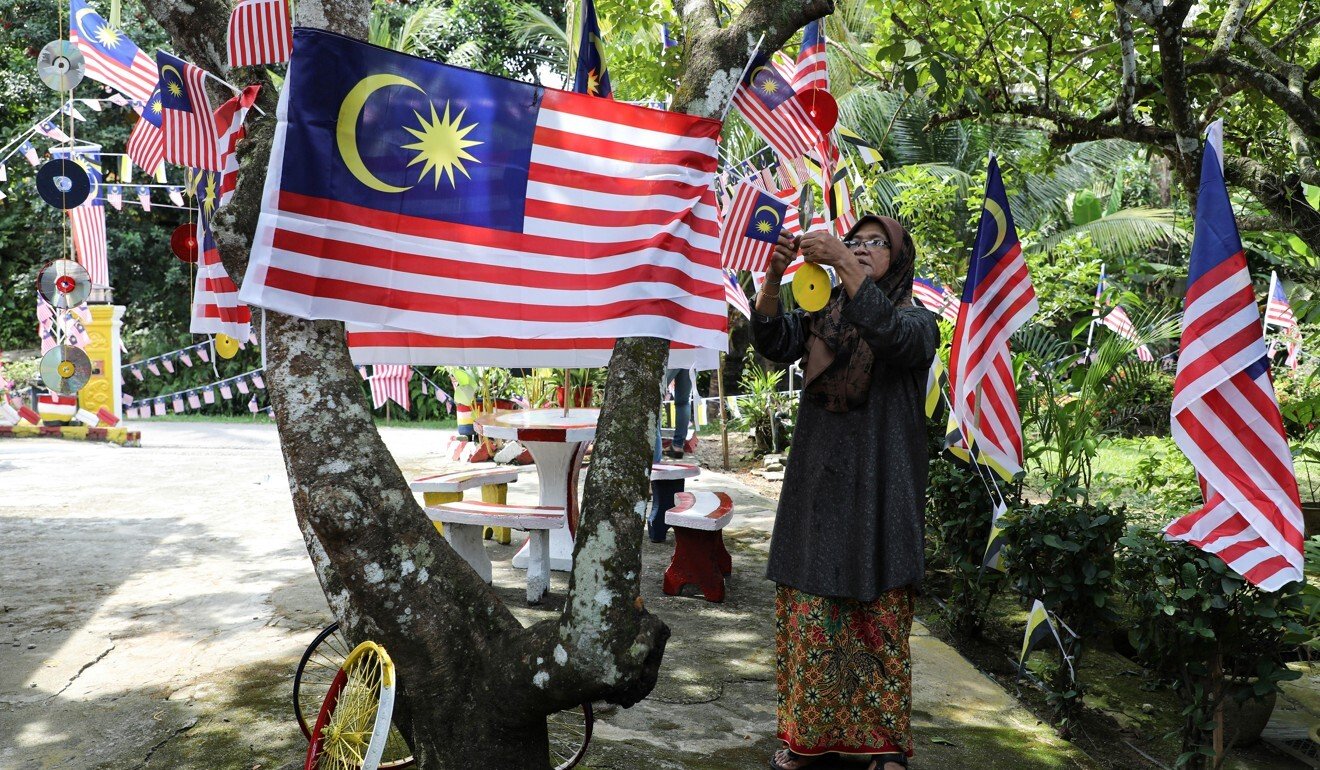
Mahathir’s Pejuang lost the Slim by-election but it’s Muhyiddin’s Bersatu that’s feeling the heat
- The 95-year-old’s new Pejuang party was trounced but it would be naive to think it competed against Barisan Nasional’s Umno to win
- What the outcome showed was that Perikatan Nasional is in choppy waters, for Umno does not need Bersatu and its alliance with PAS is successful
But the outcome has implications for the complex political realignments that are shifting and evolving six months after the PH alliance fell from power after an explosive political coup.
Last November’s Tanjung Piai by-election would be instructive for the PN government, as it clings on to power.
Then, PH suffered a massive defeat for the Johor parliament seat. Umno, already in alliance with Islamic party PAS through Muafakat Nasional (MN), portrayed the victory as a sign of Malays’ loss of confidence in PH.
This narrative later became a basis for the “Sheraton move” – named after the hotel where a deal to replace the ruling coalition was agreed upon – that upended Malaysian politics this February.
Umno is now an unofficial ally of the ruling PN coalition made up of Bersatu and PAS.
But it chose to fight the Slim by-election under the Barisan Nasional (BN) banner, a multiracial coalition between it and other non-Malay parties that ruled Malaysia for five decades until the PH victory in the 2018 election.
That year, when voters in Slim – about two hours outside the Malaysian capital of Kuala Lumpur – went to the polls, they chose from Bersatu, PAS and Umno candidates.

Now that these three parties are allies, the Umno candidate’s landslide victory of 13,060 votes is not surprising.
Slim has always been a BN stronghold and Pejuang has not even been officially registered. Its entry into the race was to test the waters and see how Malays would receive the party, and whether it should join PH in the event of a snap election.
Its “kamikaze” candidate to prevent an outright BN victory was Amir Khusairi Tanusi, a sharia lawyer and Islamic university graduate, someone it hoped would entice rural and conservative Malay voters. BN went for a local branch leader Mohd Zaidi Aziz also an Islamic studies graduate. S Santharasekaran, the third candidate, ran as an independent.
The disjuncture between political discourse at the federal level and at the grass roots was apparent throughout the campaign. PN seemed stable at the federal level, but in the Slim campaign, it was left to Umno and PAS to mobilise its grass roots that contributed to the massive win, while Bersatu remained a bystander.
Umno wants to regain its dominant role as a Malay nationalist party.
This is a strong indication that Umno does not need Bersatu to win the next general election. In the same vein, Umno has openly decided not to officially endorse PN but prefers to strengthen MN. It prefers Bersatu to join MN, thus making the prime minister’s party a junior partner to its coalition. Recent developments show that Umno wants to regain its dominant role as a Malay nationalist party by saying that it wants to recover seats lost to Bersatu in 2018.
As for Pejuang, its priority is to weaken Bersatu’s support base by accepting defectors. After all, Muhyiddin and Mahathir were close associates from the same Bersatu party until the former pushed out the latter. Since then, Mahathir has criticised Muhyiddin for tying up with Umno, leading to a series of defections from Bersatu to Pejuang.

Pejuang’s other motivation in the Slim by-election was to test how far it could go alone without joining PN or PH and it got its answer. Even as Pejuang is headed by the seemingly unstoppable 95-year-old Mahathir, it does need PH parties Amanah, PKR and DAP to help run its campaign, especially their activists from adjacent seats of Behrang, and Sungkai, which belong to Amanah and DAP respectively.
Unresolved tensions between Mahathir and Anwar resulted in PKRs lacklustre involvement throughout the campaign.
Some Malays continue to reject Mahathir’s association with PH because they see the DAP, a Chinese-dominant multiracial party in the coalition, as undermining their religious and cultural rights.
Pejuang needs to convince this group that these perception is untrue. Moreover, Mahathir needs to shed perceptions that he is dividing the Malays.
Umno has regained the trust of voters, especially Malays.
Pro-government newspapers have played up the defeat as a sign of the times, and the end of the Mahathir era. But what the outcome actually suggests is that PN, especially Bersatu, is not on secure footing.
It also proves that Umno has regained the trust of voters, especially Malays and that its collaboration with PAS has been successful.
Other by-election results such as Tanjung Piai, Rantau, Cameron Highlands and Chini have reinforced the value of the Umno-PAS tie-up.
Umno may now be more confident about regaining seats lost to Bersatu during the 2018 election and defections.

Desperate to boost its membership numbers, Bersatu has now mooted opening up the party to non-Malays, which can be a miscalculation leading to more defections to Pejuang.
If a snap poll is called, this will work towards Umno’s advantage. In fact, the only factor that can hold back Umno’s revival is if more Umno leaders, such as former leader Najib Razak, are found guilty in corruption charges they are facing.
Norshahril Saat is Senior Fellow at ISEAS-Yusof Ishak Institute. He is Co-coordinator of the Indonesia Studies Programme, and member of the Malaysia Studies Programme.
